Life is a horizontal fall
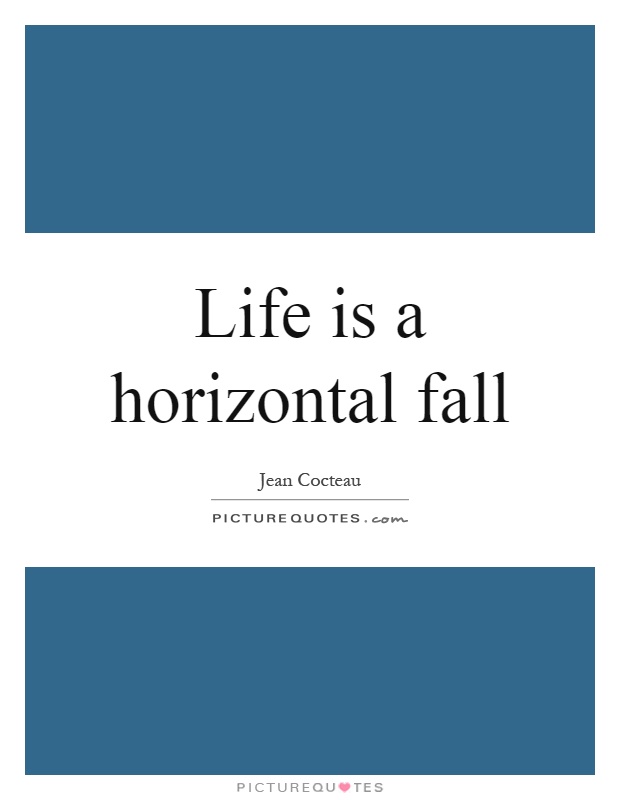
Life is a horizontal fall
Jean Cocteau, the renowned French artist, poet, and filmmaker, once famously said, "Life is a horizontal fall." This enigmatic statement has been interpreted in various ways by scholars, critics, and fans of Cocteau's work. To truly understand the depth and complexity of this phrase, one must delve into Cocteau's life and artistic oeuvre.Cocteau was a multifaceted artist who dabbled in various forms of expression, including poetry, painting, theater, and cinema. His work often explored themes of love, death, beauty, and the human condition. In his films and writings, Cocteau frequently depicted characters who were caught in a state of perpetual falling, both physically and metaphorically. This sense of free-fall, of being suspended in a state of uncertainty and flux, is a recurring motif in Cocteau's work.
When Cocteau declared that "Life is a horizontal fall," he was perhaps alluding to the idea that life is a continuous journey, a series of moments strung together like beads on a necklace. Just as a fall is a descent from a higher point to a lower one, life is a progression from birth to death, from innocence to experience. The horizontal aspect of the fall suggests that life moves forward in a linear fashion, with no way to turn back or change course.
Furthermore, the notion of a horizontal fall implies a sense of inevitability, of being swept along by forces beyond our control. Just as gravity pulls us downward in a fall, so too do external circumstances shape our lives and destinies. Cocteau's statement can be seen as a meditation on the fragility and transience of human existence, a reminder that we are all subject to the whims of fate and time.
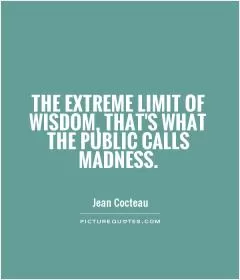
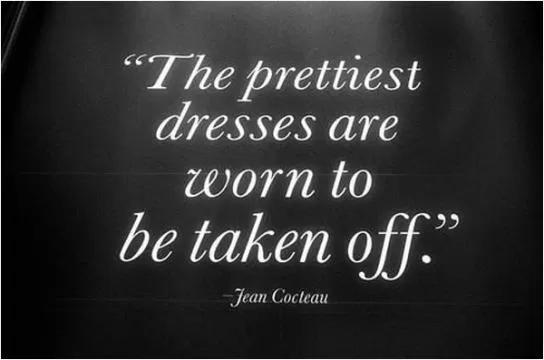
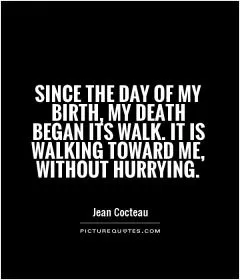
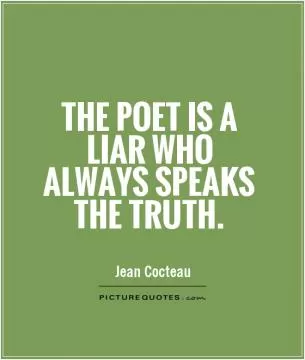
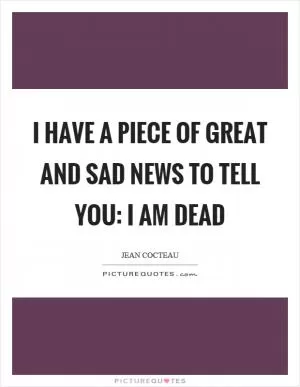
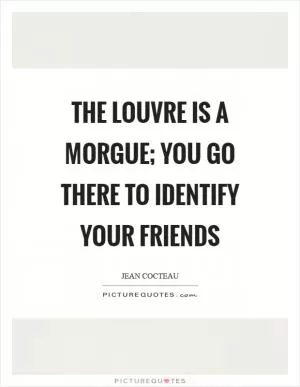
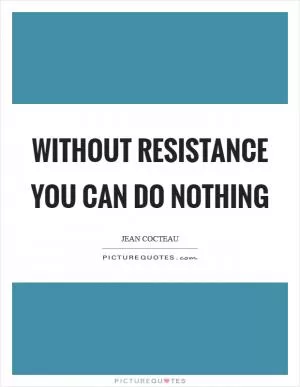
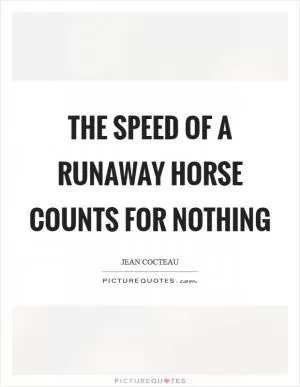
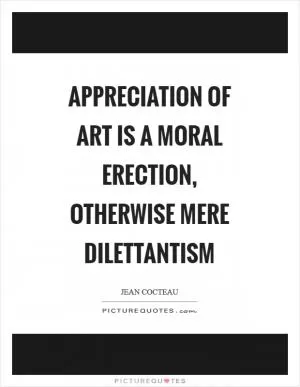

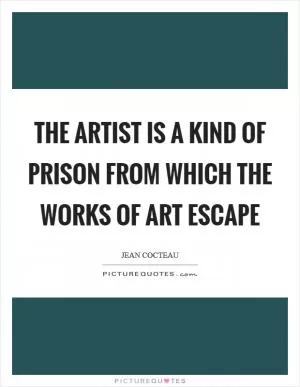
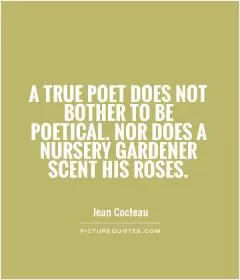
 Friendship Quotes
Friendship Quotes Love Quotes
Love Quotes Life Quotes
Life Quotes Funny Quotes
Funny Quotes Motivational Quotes
Motivational Quotes Inspirational Quotes
Inspirational Quotes